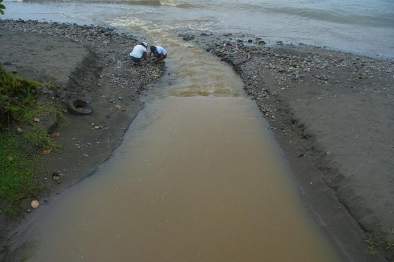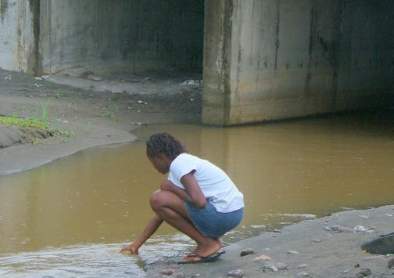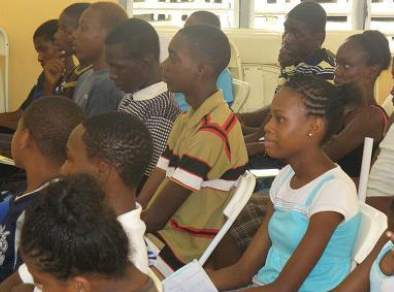The Camp which ran from August 23rd-26th, 2011 saw the participation of thirty-six (36) students (boys and girls) who all demonstrated a keen interest in gaining knowledge on various aspects of water resources management.
The Programme’s content and activities had a strong scientific base and given that fact, the Camp’s Facilitator always ensured that the messages and information shared were tailored to the youth audience.
Mr. Trevor Thompson, Chair of Global Water Partnership-Caribbean (GWP-C) delivered an introductory presentation based on the Camp’s theme, to kick-off the Programme. He focused on the availability of water globally and the challenges faced both locally and worldwide with the supply of fresh water. His presentation which set the tone for the academic content of the Camp encouraged the students to think of the value of water.
The Camp’s design and delivery allowed for valuable interaction between the students, the Camp Facilitator and presenters as there were discussion sessions after all presentations. Furthermore, other activities such as a debate triggered much enthusiasm among the students to learn more about water. Participants were placed on teams and were asked to argue for or against the moot “Be It Resolved: The Flow of Fresh Water into the Sea Has Little Effect on Marine Life.”

Students also had the opportunity to learn about various factors affecting water quality and were required to use some of the technical terms and instruments they were introduced to in carrying out subsequent field work and analyses within the Programme.
They were assigned to groups and given tasks which gave them the autonomy to not only work as a team but to put into practice some of the theory they learnt on water resources management.

For the field work, students were put into three groups. Each group was given a watershed map and study site options (various rivers) to conduct their study.
Each group was asked to discuss the results of their activity, make conclusions as well as provide lessons learnt.
An evaluation of the camp illustrated that all students (100% of participants) indicated that they now have a better appreciation of the value and challenges of water.
Global Water Partnership-Caribbean (GWP-C) along with the National Water and Sewerage Authority (NAWASA); the Grenada Solid Waste Management Authority (GSWMA); the Ministry of Agriculture; the Grenada Port Authority and St. George’s University of Grenada all played a role in supporting the Camp Programme.
